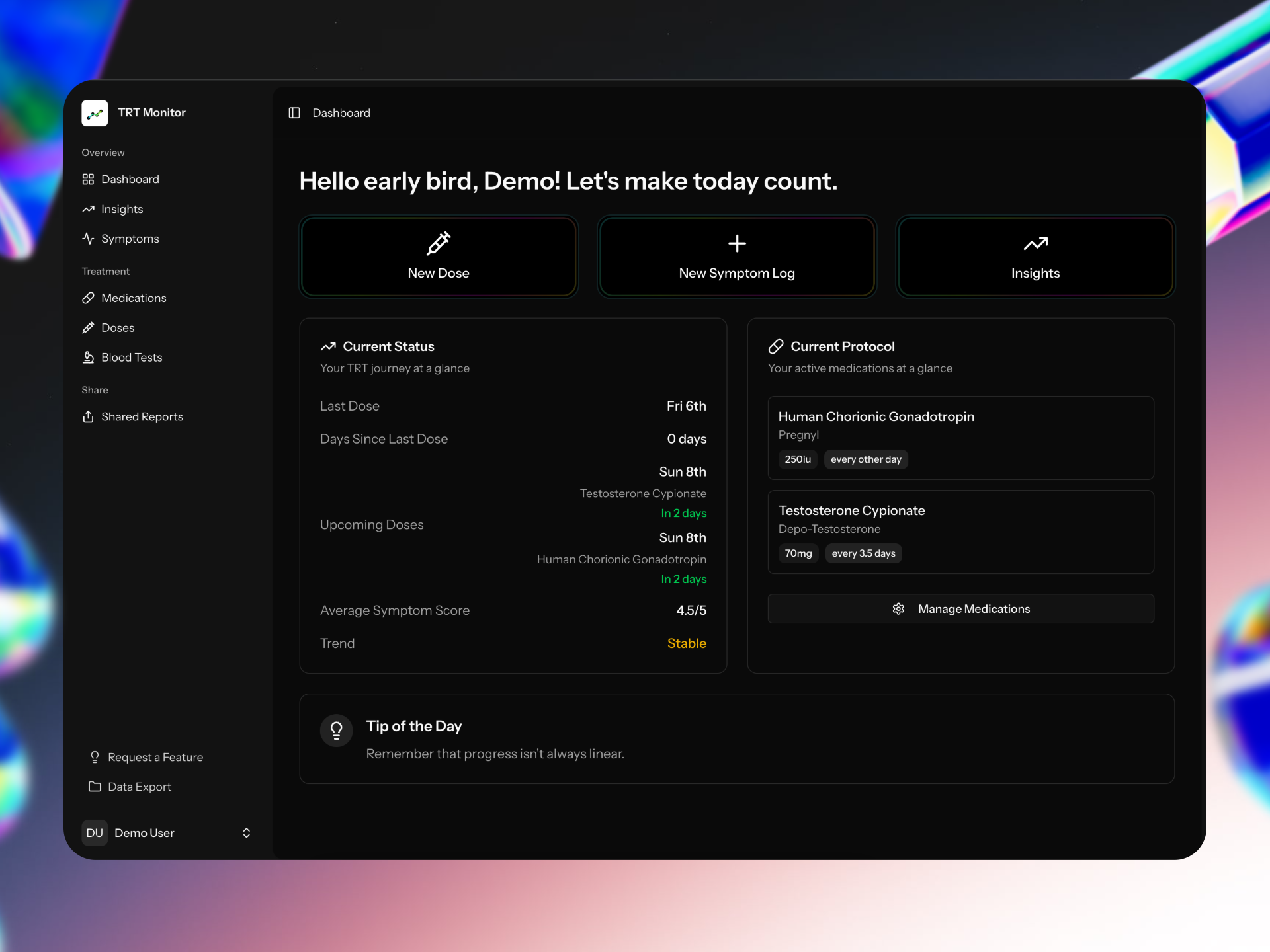Testosterone Replacement Therapy (TRT) can significantly improve quality of life for men with low testosterone. But before you begin, there are important factors to consider. This guide addresses key questions to ensure you're informed and confident in your TRT decision.
Importance of Proper Diagnosis
Accurate diagnosis of low testosterone (hypogonadism) involves:
- Two separate morning testosterone tests showing consistently low levels (AAFP guidelines).
- Evaluation for underlying causes, such as thyroid disorders or sleep apnea, to ensure TRT is appropriate (Mayo Clinic).
Common Symptoms of Low Testosterone
Recognizing low T symptoms can prompt timely evaluation:
- Reduced libido or sexual dysfunction
- Chronic fatigue and low energy
- Mood issues (depression, irritability)
- Loss of muscle mass, increased fat
- Cognitive difficulties (focus, memory)
Symptoms alone aren't sufficient; confirm diagnosis with proper testing (Cleveland Clinic).
TRT Treatment Methods
Several effective TRT methods exist:
- Injections: Commonly weekly or bi-weekly, administered intramuscularly or subcutaneously.
- Topical gels or creams: Daily application; convenient but requires careful handling.
- Patches: Daily transdermal absorption; may cause skin irritation.
- Implantable pellets: Implanted every 3-6 months, providing sustained release (TRT Monitor Beginner’s Guide).
Choose based on convenience, lifestyle, and side-effect profile.
Essential Tests Before Starting TRT
Baseline testing ensures safety and effectiveness:
- Total and Free Testosterone
- LH and FSH (to identify the cause)
- PSA (prostate-specific antigen)
- Hematocrit and hemoglobin
- Estradiol (E2)
- Liver enzymes and lipid profile (Complete TRT Blood Work Schedule).
Risks and Side Effects of TRT
Common manageable side effects include:
- Acne or oily skin
- Mild fluid retention
- Mood fluctuations
- Testicular shrinkage
Serious risks, though rare, require regular monitoring:
- Polycythemia (high red blood cells)
- Prostate enlargement or complications
- Worsened sleep apnea
- Potential cardiovascular impact (TRT Side Effects Management).
Regular monitoring via bloodwork mitigates these risks significantly.
Fertility and Family Planning Implications
TRT typically reduces fertility. Men planning children should discuss fertility preservation methods (e.g., hCG supplementation or sperm banking) with their doctor before starting TRT (Cleveland Clinic Fertility).
Monitoring Your TRT Journey
Ongoing monitoring is crucial. Regular blood tests, symptom tracking, and doctor consultations ensure TRT remains safe and effective. Tools like TRT Monitor simplify managing injections, symptoms, and lab results, giving you clarity and control.

Key Questions to Ask Your Doctor
Come prepared with important questions:
- What's causing my low testosterone?
- What are the benefits and risks specific to me?
- How will TRT affect fertility?
- How frequently should I monitor blood levels and symptoms?
- Are lifestyle changes or adjunct treatments beneficial?
Conclusion
Starting TRT can be transformative, but it's a significant commitment. Confirm a proper diagnosis, understand treatment methods, acknowledge potential side effects, and ensure regular monitoring. With careful preparation and support-through medical oversight and tools like TRT Monitor-you can achieve optimal benefits from TRT.